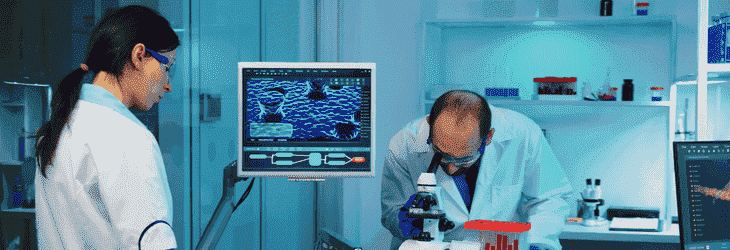Track: Screening & Early Detection

Screening and early detection play a crucial role in reducing cancer mortality rates by identifying the disease at its most treatable stages. This session focuses on innovative cancer screening technologies, biomarker-based diagnostics, and evidence-driven public health interventions that enhance early detection efforts across diverse populations. By emphasizing preventive oncology, cancer epidemiology, and healthcare research, the session explores strategies for expanding access to screening services, improving diagnostic accuracy, and promoting cancer awareness in underserved regions. Attendees will gain insights into global cancer initiatives aimed at advancing cancer prevention strategies, improving patient survival outcomes, and fostering equity in early cancer care.
Advances in Biomarker-Based Cancer Screening Technologies
Biomarkers have revolutionized early cancer detection by identifying subtle molecular changes before symptoms arise. This sub-topic highlights recent breakthroughs in biomarker-driven diagnostics that enhance cancer screening accuracy, reduce delays in diagnosis, and support evidence-based preventive oncology strategies.
Role of Imaging Innovations in Early Cancer Detection
Medical imaging remains essential for timely diagnosis. This sub-topic explores advances in MRI, CT scans, PET imaging, and AI-assisted technologies that improve early detection capabilities, optimize cancer screening protocols, and contribute to more effective cancer prevention strategies.
Population-Based Cancer Screening Programs and Outreach
Community-wide screening initiatives are pivotal for reducing cancer disparities. This sub-topic examines the implementation of large-scale cancer screening programs, their integration into public health interventions, and strategies to expand access to underserved populations to improve early detection outcomes.
Genetic Testing for Hereditary Cancer Risk Assessment
Genetic screening helps identify individuals at high risk for hereditary cancers. This sub-topic emphasizes the role of predictive genetic testing, counseling, and preventive oncology interventions in guiding early detection efforts and improving patient survival rates.
Public Health Interventions for Enhancing Screening Participation
Raising awareness is key to improving participation in cancer screening programs. This sub-topic highlights health education campaigns, behavioral strategies, and digital outreach initiatives that motivate communities to undergo regular screenings and adopt proactive cancer prevention measures.
Artificial Intelligence and Digital Health in Early Cancer Diagnosis
AI-powered tools are transforming cancer detection by improving diagnostic precision and efficiency. This sub-topic explores how AI-driven imaging analysis, predictive algorithms, and telemedicine platforms enhance cancer screening efforts and integrate seamlessly into global healthcare research.
Scientific Highlights
- Public Health & Cancer Awareness
- Cancer Prevention
- Screening & Early Detection
- Vaccination & Immunoprevention
- Environmental & Occupational Factors
- Complementary & Emerging Approaches
- Genetic & Personalized Prevention
- Cancer Biology and Genetics
- Cancer Immunology
- Molecular Oncology
- Hematology in Cancer
- Cancer Diagnosis and Therapeutic Approaches
- Oncology Research and Innovations
- Advanced Methods in Cancer Research
- Cancer Epidemiology and Prevention
- Future Trends in Prevention & Research
- Pediatric Oncology


